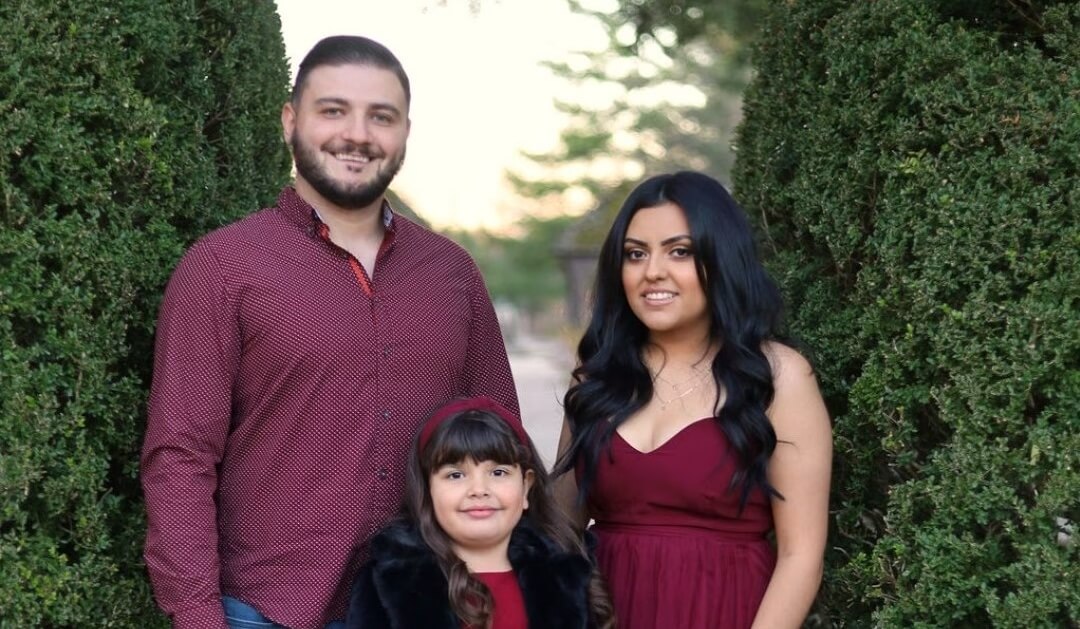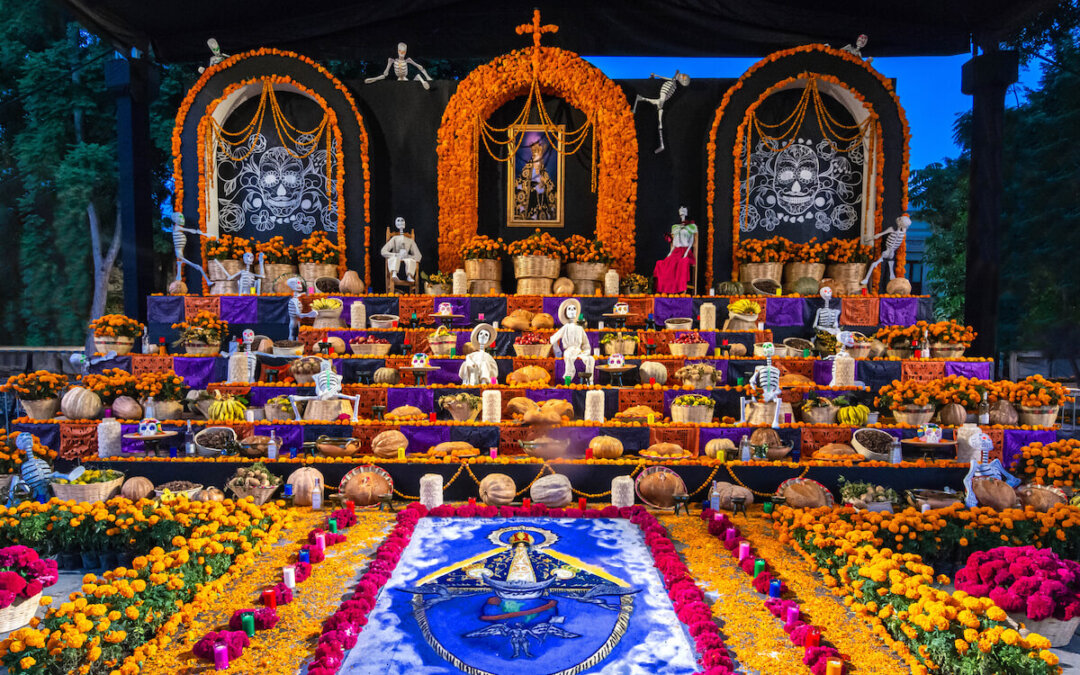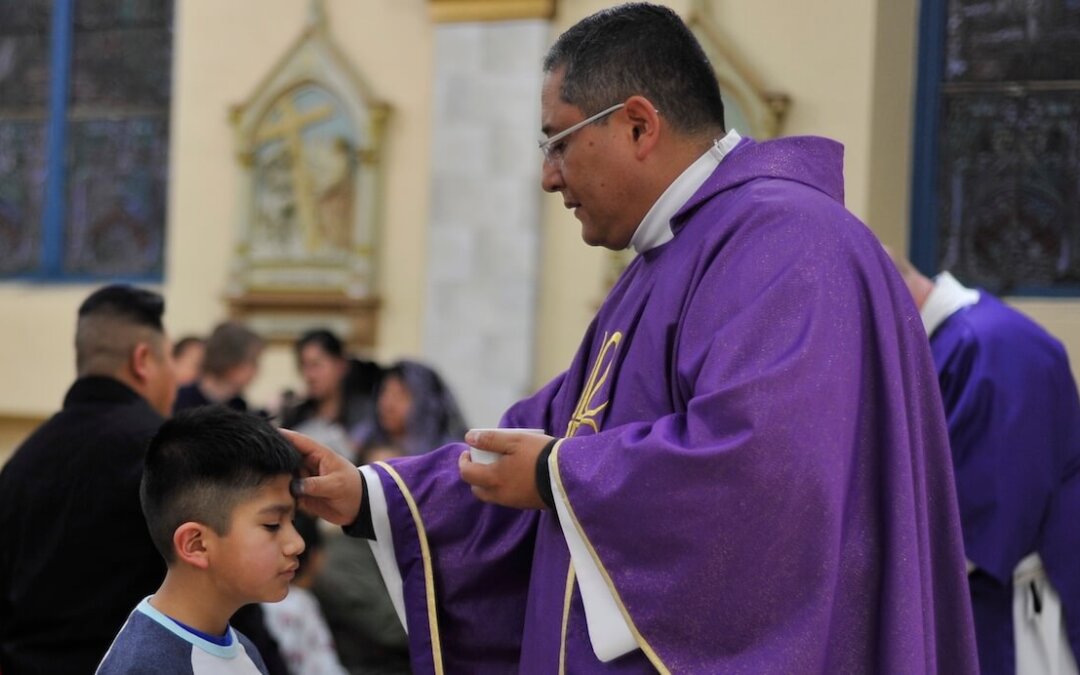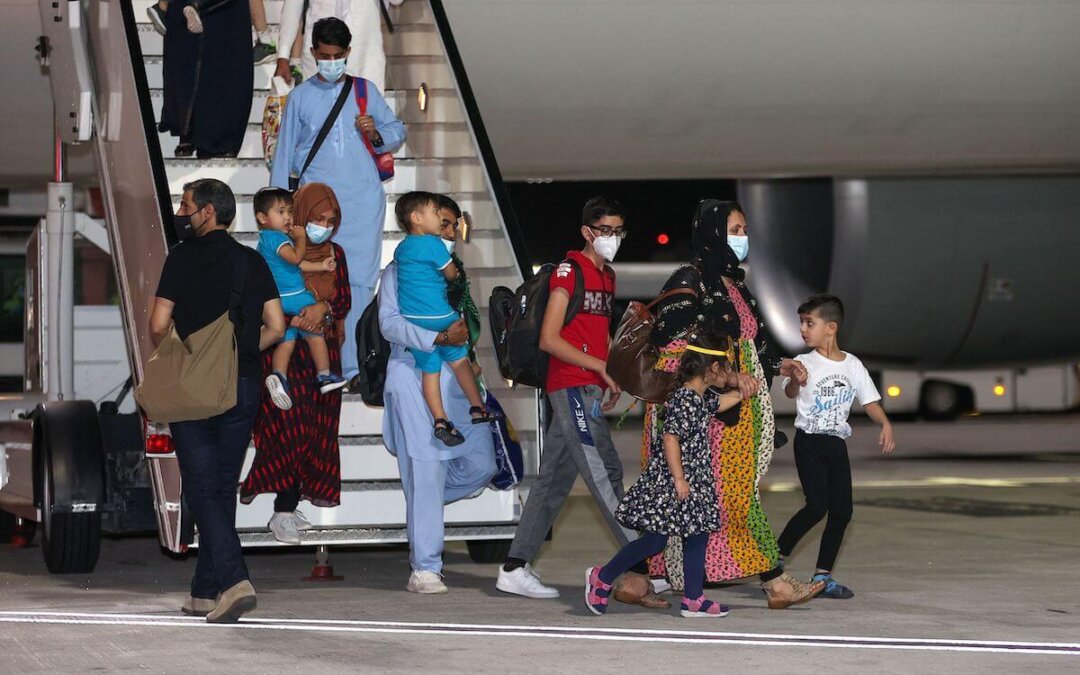
Karla and Arnes Bahtagic
It is going to be 25 years since I married my Iowan husband. We had a beautiful ceremony on an island off the coast of Mexico. Unfortunately, my husband’s family was not able to attend our wedding, but I always pictured that if they joined mine, it would resemble a scene from the movie My Big Fat Greek Wedding. The romantic comedy is a lively picture of the clash of two hugely different families, two cultures and the love of two people who brought them together.
I became part of this special group of interracial marriages that has dramatically increased since the U.S. Supreme Court banned laws against these unions in 1967. Iowa legalized interracial marriages even earlier, in 1851.
While marriage can be difficult sometimes, interracial marriages usually present added challenges. Statistics do not show how these marriages handle the differences in culture, religion, and traditions. Although I have my own personal experiences, I wondered how other interracial marriages manage to cope with those differences right here in Iowa.
[inline-ad id=”4″]
Adela and Brian Adeniyi-Williams have been living in Iowa for many years. Brian is originally from Nigeria and Adela from Mexico. They met in 2009 in a club, dancing “Bachata” for the first time. Adela was not interested in Brian at first, but his persistence finally paid off– they ended up dating and eventually marrying in 2012.
Unlike many other mixed-race couples, Adela and Brian’s parents were very accepting of the relationship from the beginning.
Instilling both cultures in their children is important to the couple.
“I take a lot of pride in my roots, celebrating my language, my traditions and the food. I want to expose my kids to my culture, but I also want them to learn about their Nigerian roots,” Adela said.
And their children’s cultural pride is especially important because they live in Iowa, not Nigeria or Mexico.
“I want my kids to have a healthy image of themselves,” Brian said. “I tell them that they have an international flavor, that they are exotic and even when people here won’t understand how beautiful they are because they don’t understand their backgrounds, I want them to grow up confident and to see that who they are and where they come from as an advantage, instead of feeling that their roots are something they have to hide.”
[inline-ad id=”0″]
Manisha Paudel and John met in Davenport in 2014 through mutual friends. Manisha is originally from Nepal while John is from Iowa. Manisha said she did not consider dating John at first. Her family is very traditional and it was uncommon to marry outside of the culture. But after years of friendship, she and John became romantically connected.
Manisha said her mother was not happy about the relationship when she first told her, but after a while she said “If you want to marry that guy and you think you are going to be happy with him, marry him.”
John’s parents also had some reservations about the couple’s cultural differences and how they were going to raise their children. Religion was another barrier, along with language. Manisha’s mother spoke no English, while John’s parents didn’t speak Nepali.
When the couple did marry, their wedding was celebrated in two days–the Nepali day and the western day. The Nepali day is geared towards the bride and full of tradition like wearing beautifully colored dresses instead of the white bride’s gown (white is what Nepali people wear at funerals). The couple was very intentional about showcasing both cultures on their special day.
[inline-ad id=”1″]
Now, after more than two years of marriage, there have been some adjustments. John said that he does not see his family as often as Manisha gets in touch with hers. That closeness is important to her.
The couple said they plan for their kids to speak both languages and enjoy traditions from both sides. They also want to teach their children to be open to other diverse groups of people.
“Even with all the differences in cultures, at the end of the day when we go to bed at night, we are just two souls that fell in love and those differences are a beautiful thing, it makes us more important, more valuable, and more unique,” John and Manisha agreed.
Karla and Arnes Bahtagic were very young when they moved to the U.S. They met while working at a financial institution in 2017 and married in 2018. Though they feel their cultures are remarkably similar, a big concern for Karla’s family was that Arnes was Muslim. They wondered if Karla would have to convert from Catholicism in order to marry her fiancé and questioned the role of women in his faith. But the two figured out how to blend their faiths.
“We both have a mutual understanding in regard to religion where we both celebrate each other’s faith and traditions,” Arnes said.
[inline-ad id=”2″]
Arnes’s parents always wanted him to marry a Bosnian, and they had initial concerns about Karla being undocumented, but those details faded when they met her, they ended up loving their son’s significant other.
The couple said they want to expose their future children to both faiths and want to give them the freedom to believe whatever they wish.
Karla said something to me that resonates during these difficult times of racial injustice: “I know it sounds like a cliché, but love really can conquer all, it comes in different shapes, sizes, races and religions and as long as you have a deep love for the other person, race doesn’t matter.”
Her husband agreed, “At the end of the day we are humans, God put all of us on earth to find true love.”
[inline-ad id=”5″]
There is so much we can learn from the profound love that brings different races, faiths and cultures together. Yes, there may be some trepidation and challenges at the beginning, but in the end there is respect, commitment and willingness to open our hearts to persons different than ourselves.
These marriages of the individuals that share their stories with me were not legal across the country mid-last century, but love made its way into the codebooks. I hope love prevails once again, at home and in the laws that impact us all.
by Claudia Thrane
Posted 3/10/21
Iowa Starting Line is an independently owned progressive news outlet devoted to providing unique, insightful coverage on Iowa news and politics. We need reader support to continue operating — please donate here. Follow us on Twitter and Facebook for more coverage.
[inline-ad id=”3″]
Politics

Biden marks Earth Day by announcing $7 billion in solar grants
The Biden administration on Monday announced the recipients of its Solar For All Program, a $7 billion climate program that aims to lower energy...

6 terrifying things that could happen if the Comstock Act is used to target abortion
Does 1873 sound like a really, really long time ago? Well, that’s because it is—but if Republicans and far-right anti-abortion activists have their...
Local News

No more Kum & Go? New owner Maverik of Utah retiring famous brand
Will Kum & Go have come and gone by next year? One new report claims that's the plan by the store's new owners. The Iowa-based convenience store...

Here’s a recap of the biggest headlines Iowa celebs made In 2023
For these famous Iowans, 2023 was a year of controversy, career highlights, and full-circle moments. Here’s how 2023 went for the following Iowans:...




